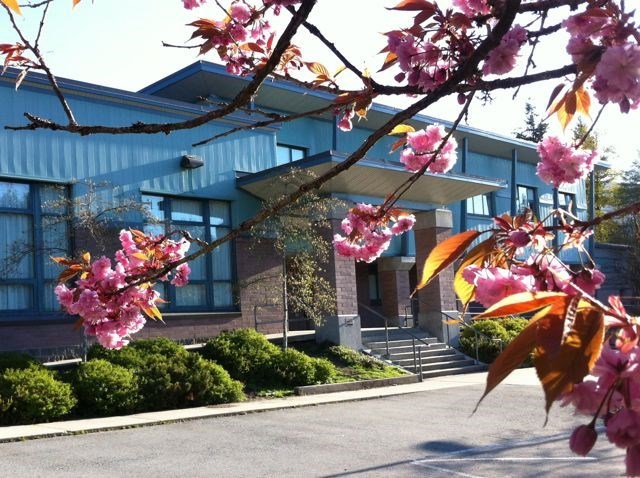Birthday parties, sleepovers, people from different households getting together and even carpooling are all being blamed for a spike in school COVID exposures on the North Shore.
February was the worst month so far for COVID cases in North and West Vancouver schools with over 70 exposure notices issued, according to the administrator of a Facebook site where parents share information.
That trend has continued through the end of February and into the beginning of March, with half a dozen recent exposure warnings.
In the past week, the pace of the notices has thankfully slowed, said Coralynn Gehl, who runs the site North Shore COVID-19 Information.
Gehl said she hopes the number of exposure warnings in February was a wake-up call to local families.
Sleepovers, birthday parties blamed
In a recent letter to parents, West Vancouver schools superintendent Chris Kennedy implored families not to let their guard down. Kennedy said health officials have pointed to sleepovers, birthday parties and gatherings of multiple families as some of the activities that have led to the spread of COVID recently on the North Shore.
“We understand the desire to get back to normal, but we all need to continue to do our part to keep our community safe and our schools open for learning,” he wrote.
Parents at Ecole Argyle Secondary in North Vancouver were also tipped that carpooling has been identified as a possible way the virus has been spread.
“We share this concern as we have noted a number of students carpooling or eating in cars together,” the letter stated. Administrators have been monitoring the parking lot and speaking to students, according to the letter.
Currently, students in a Grade 4/5 class at Ecole Braemar Elementary are nearing the end of their time at home in isolation after exposures to multiple people who had COVID between Feb. 16 and 19. A kindergarten and Grade 2/3 class at the school and a Grade 2/3 class are also self-monitoring after exposures Feb. 24/25 and Feb. 17 to 23 respectively.
Novaco daycare families told to self-isolate
The Novaco daycare in Norgate – which provides care to 37 kids - has also temporarily shut and staff, and children who attend the daycare have been told to self-isolate to March 12 following an exposure to more than one case there Feb. 22-26.
A Grade 5 class at the adjacent Norgate Elementary school has been told to self-monitor after an exposure there March 1.
Other recent exposures include students in a Grade 1 and Grade 4 class at Upper Lynn Elementary, who have been told to monitor for symptoms after exposure to two cases of the virus on March 1 and 2. Upper Lynn is one of three schools in North Vancouver – along with Carson Graham and Handsworth secondaries – that have accounted for 40 per cent of exposure warnings in the school district.
Other recent warnings included ones that went to students in a Grade 5/6 class at Brooksbank Elementary after potential exposures on Feb. 25 and March 1 and a warning for the Tsleil-Waututh First Nations school with exposure dates of Feb 25 and 26.
At the secondary level, recent exposures included Seycove students in two classes, including a careers 10 and English 10 class who were exposed Feb. 23-25 and an exposure at St. Thomas Aquinas private school with dates of Feb. 19 to 26.
In West Vancouver, a Grade 1/2 class at Hollyburn Elementary has been told to self-monitor after an exposure March 1. A Grade 5 class at Westcot Elementary also got a warning about a potential exposure Feb. 22 and 23. Other recent West Vancouver exposures include three classes at West Vancouver Secondary, including a chemistry 12 class, physical geography and morning choir class warned about exposures Feb. 24-26. And a Grade 8 science class at Ecole Sentinel Secondary warned of an exposure Feb. 24.
Dr. Mark Lysyshyn, deputy chief medical health officer for Vancouver Coastal Health, said there was an uptick in cases on the North Shore in February, especially among teens.
But he also steered away from blaming young people.
Health officer says teens need more options
“It’s been a long pandemic. I think it's hard on kids and with the lockdown the way it is, there really isn't a lot for them to do,” he said.
“Really, what we need to do as society is find safe ways for kids to be able to socialize. We need to get youth sports happening more, we need to get arts and cultural programs happening again.”
Lysyshyn said those types of activities with COVID-19 safety plans in place are a better alternative than leaving kids to their own devices.
“What ends up happening when everything is banned, you know, then people say, ‘Well, you know, we're just gonna get together anyway, we're gonna do whatever.’ I think we are in a phase now where we need to provide kids with more options of things to do. Otherwise, they'll figure out options themselves, and they won't always be the safest.”




